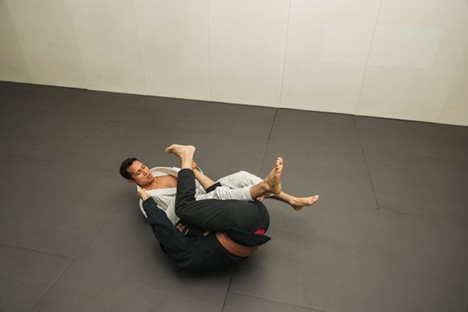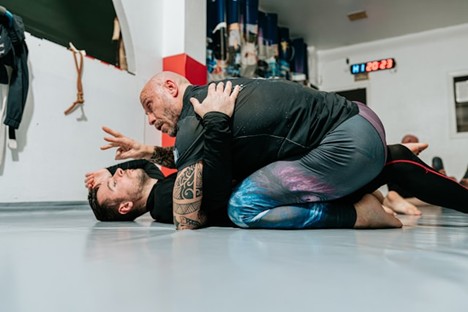
Martial arts are often seen purely as physical pursuits; the punches, the takedowns, and the countless hours spent drilling techniques until they become instinctive. Yet beneath the sweat and repetition lies a far deeper purpose. For those training in Brazilian Jiu Jitsu in Renton, WA, the practice extends beyond combat skills; it’s about cultivating inner strength. The sport refines discipline, builds resilience, and helps individuals develop a mindset capable of tackling challenges both on and off the mat.
Whether your goal is competition, fitness, or personal growth, martial arts demand more than physical ability. They require practitioners to face failure head-on, push through discomfort, and commit to consistent improvement even when progress feels slow. This intricate blend of mental and physical development is what makes MMA such a powerful tool for shaping character and personal growth.
Discipline in martial arts begins with something deceptively simple: showing up. No amount of talent or natural athleticism can replace the habit of consistent training. For new students, this often means overcoming the initial fear of stepping into an unfamiliar environment. For seasoned practitioners, it means carving out time even when life feels too busy or motivation runs low.
The habit of showing up teaches reliability in every aspect of life. When someone commits to attending class multiple times a week, they begin to develop a rhythm. Over time, this rhythm transforms into discipline. The lesson becomes clear: progress is the result of steady, deliberate effort, not sudden bursts of inspiration.
This daily commitment also requires humility. Practitioners understand that each class will not always feel like a triumph. Some days are marked by breakthroughs, while others bring fatigue and setbacks. Yet the discipline of showing up reinforces the idea that growth is found in the process itself, not just in the outcomes.
At its core, MMA is repetitive. Techniques must be drilled hundreds, sometimes thousands of times, to become second nature. This repetition might appear monotonous from the outside, but for practitioners, it is the foundation of mastery.
Repetition demands focus and patience. It requires individuals to refine the same movement until it becomes efficient, precise, and instinctual. In doing so, fighters learn that excellence rarely comes from shortcuts. Instead, it comes from committing to details that most would overlook.
This lesson in repetition translates beyond the mat. In school, work, or personal projects, the same principle applies: progress often requires doing the basics consistently until they become part of who you are. This training teaches that the small things done repeatedly with care can create the foundation for bigger achievements.
Few things build resilience like martial arts. In training, failure is not only expected but inevitable. Every practitioner, regardless of experience, is submitted, thrown, or outperformed at some point. These moments are humbling, but they are also transformative.
Instead of framing failure as defeat, training reframes it as an opportunity to grow. Each mistake reveals a gap in knowledge or execution, pointing directly to what needs improvement. This process develops resilience by teaching students to see setbacks not as reasons to quit but as stepping stones toward progress.
In sparring or competition, resilience is tested in real time. Fatigue sets in, strategies collapse, and opponents may feel overwhelming. Yet it is precisely in these moments that martial artists learn the importance of persistence. The act of staying calm under pressure, adapting in the face of adversity, and continuing to move forward builds a kind of mental toughness that carries into every aspect of life.
Martial arts have a way of stripping away ego. No matter how strong or confident someone feels, there will always be another practitioner with more skill, speed, or experience. This constant reality check is not meant to discourage - it is meant to keep students grounded.
Humility teaches individuals to become lifelong learners. Training never truly ends because there is always more to discover, whether it’s a new technique, a different strategy, or a deeper understanding of fundamentals. Those who embrace humility realize that progress is not about proving themselves better than others but about becoming a better version of themselves.
This attitude fosters resilience because it removes the fear of imperfection. When ego is set aside, failure becomes less personal and more productive. Practitioners learn to accept feedback, adapt quickly, and keep moving forward without letting pride get in the way.
Another dimension is the discipline required for conditioning. Strength, endurance, and flexibility are not just helpful, they are necessary for long-term progress. This requires consistency in workouts, nutrition, and recovery.
Maintaining physical conditioning also demands mental discipline. Practitioners often train even when they feel sore or tired. They push through discomfort, balancing the need to work hard with the wisdom to rest when appropriate. This balance mirrors life outside the gym, where resilience is often about knowing when to push and when to recharge.
Moreover, the focus cultivated during training carries over into daily life. The ability to stay present in the middle of a sparring match or during a grueling drill teaches mindfulness under pressure. This skill allows practitioners to stay calm in stressful situations beyond the mat, reinforcing the deep connection between physical discipline and mental resilience.

While MMA emphasizes individual growth, it also fosters resilience through community. Training partners become a support system, offering encouragement, feedback, and accountability. The environment created in a dojo or gym is one where everyone is both a student and a teacher, sharing in the collective goal of improvement.
This sense of community builds resilience because it reminds practitioners they are not alone in their struggles. Everyone faces challenges, plateaus, and frustrations, but the shared experience creates a bond that strengthens resolve. When surrounded by people who are also committed to discipline and growth, individuals are more likely to persevere.
Perhaps the greatest benefit is how its lessons extend into everyday life. The discipline of showing up, the resilience built through failure, the humility of constant learning, and the community of shared growth all translate beyond the walls of the gym.
In professional environments, these lessons show up as reliability, perseverance, and adaptability. In personal relationships, they manifest as patience, empathy, and the ability to handle conflict calmly. And in moments of personal challenge, martial artists draw on their resilience to face difficulties with strength and clarity.
Training becomes more than a physical practice—it becomes a way of approaching life. The qualities it cultivates prepare individuals not only to defend themselves physically but also to navigate the inevitable challenges of work, relationships, and personal growth with confidence and resilience.
Discipline and resilience are not qualities that appear overnight. They are forged through repetition, setbacks, and the decision to keep going when things get difficult. It provides the perfect environment for this growth, offering daily opportunities to practice persistence, humility, and focus.
For those who commit to the journey, the lessons extend far beyond physical techniques. They shape the way practitioners approach challenges, embrace growth, and support others along the way. In a world where distractions are constant and setbacks are unavoidable, the discipline and resilience developed through MMA are skills that stand the test of time, both on and off the mat.